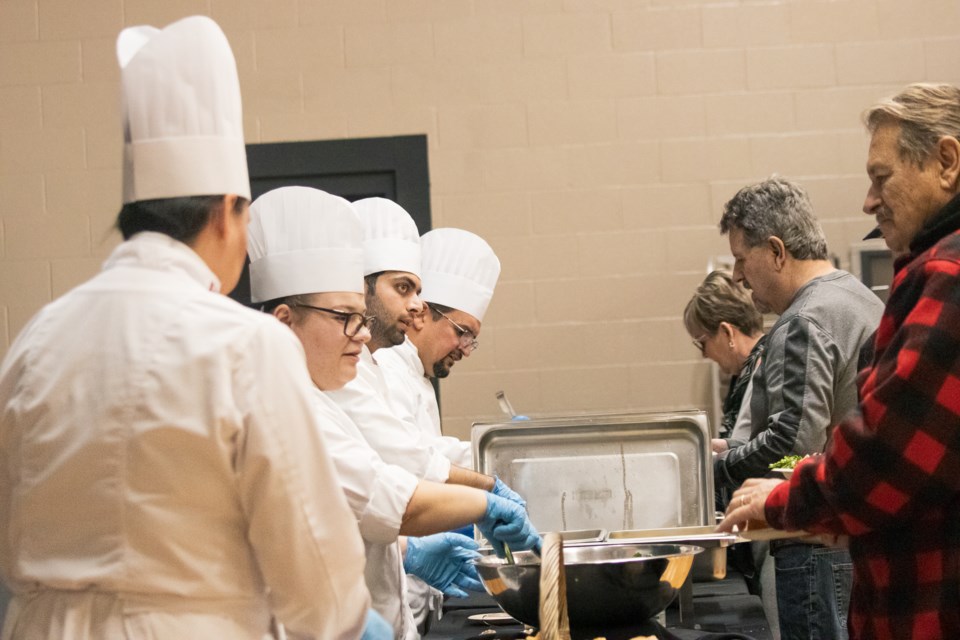ST. PAUL – In February, second-year culinary students at Portage College will head to Italy for a two-week international learning experience.
Heather Lemke, one of the students who will be going, says that when she heard about the trip, her heart dropped. The trip is a once-in-a-lifetime opportunity for the students to expand their repertoire as aspiring cooks and chefs, she explained.
Lemke says she is excited to experience and learn about authentic Italian cuisine.
She looks forward to finding and experiencing dishes beyond what is being served at restaurants, and seeking food eaten by locals daily.
“If somebody could show me how they do it the traditional way, I would love to learn that,” she says.
New dishes could be found in hidden, little diners, or discovered through meeting cooks who know the old ways - or perhaps even finding a grandmother to share her recipes, says Lemke.
As to why she wants to do take the trip, Lemke says food is more than something that people eat. Every food has a history. Food helps paint a picture of how a culture evolved, she believes.
Some dishes are hundreds of years old and learning from someone who can still make those dishes traditionally would be a priceless opportunity.
“I want to experience that . . . and I also want to experience the Italian way of how they feed their family,” says Lemke. “To enjoy their food in a true, traditional way.”
Bringing Italy back home
Culinary Arts Instructor Colleen Neily agrees the trip is much more than simply learning recipes but being immersed in Italian culture and history. The instructors who will be joining the trip are hoping to impart the knowledge they gain to current and future students.
Neily says food encompasses every culture. For people in the culinary world, that means, “We’re always continuously learning,” she explains. “I’ll be the first to admit that I don’t know everything.”
“So, I’m excited to take these students and be with them in Italy and learn alongside them.”
According to Neily, at some point, the students will also be able share with the community what they learned abroad.
“When our students go through the [last part] of their [program], which is dining cuisine, which encompasses all the two years of the culinary course – we open our dining room and we’ll be doing an authentic Italian dinner,” says Neily. “Stay tuned to see what we bring back.”
Global skills
Shona Hommy, manager, international, at Portage College, has been involved with the initiative of sending Portage College students to learn internationally.
She says the initiative is funded through the Global Skills Opportunities (GSO) grant, which is part of Canada’s International Education Strategy (2019-2024). Part of GSO’s aim is to help all students participate in international learning experiences, particularly students from equity-deserving backgrounds.
As one of the 47 institutions awarded with the grant, she says it enabled over 100 students from different programs at the college to participate in various virtual and physical international experiences with support from Colleges and Institutes Canada (CiCan) and Economic and Social Development Canada (ESDC).
For example, students from the Environmental Technology Diploma (ETD) went to Costa Rica; Fine Arts students went to New York; Community Social Work (CSW) students went to Ireland and Scotland; and business students went to Japan.
The culinary arts students are the next group to head out.
“Intercultural competency is a huge piece of what every individual is going to need to be able to have,” says Hommy, explaining that the world is increasingly becoming more diverse and becoming more of an interconnected global society.
“Being able to relate to other cultures and relate to the diversity in individuals is a key skill for people.”
Hommy adds, “It's going to help them in their careers, for sure. It's just so important that people appreciate and embrace diversity, as opposed to being unaware and afraid to explore it.”
Ultimately, she says the biggest advantage of the initiative is to expand the knowledge of students by exposing them to different cultures and allowing them to see the diversity in the world, and “To experience new things and to have a new appreciation for humanity.”



